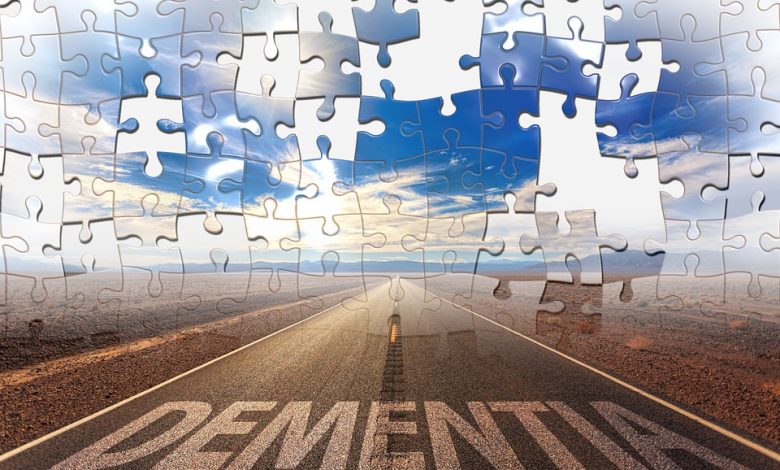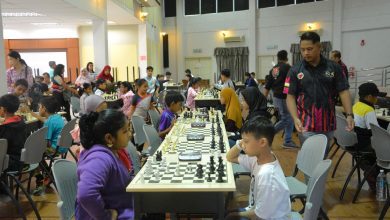Dementia, A Gendered Issue That Intersects With Ageing, and Disability Rights in Malaysia


By Sharifah Tahir
“There is no greater disability in society than the inability to see a person as more” Robert M Hensel.
Fifty-five million people worldwide who are mostly older adults above 65-years old, live with dementia, a chronic neurocognitive disorder that affects brain functioning and causes progressive loss of cognitive, social, and physical skills. My dementia journey as a full-time care partner to my 88-year old mother living with dementia shapes my perspective that dementia intersects with gender, ageing and disability, and guides my advocacy for a disability rights model in dementia response.
Malaysia is home to around 270,000 persons with dementia; 10% are women compared to 7% men, echoing the global pattern of its impact on women disproportionately developing dementia. More women than men live with dementia (female-to-male ratio of 1:69) as they live longer than men and comprise most older adults at advanced ages. On average, compared to older men, older women have had less education; a risk factor for dementia. Women make up 65 percent of total dementia-related deaths.
Driven by gender roles, women represent two-thirds of informal care partners globally. We provide a disproportionate amount of care hours, up to 71% in lower middle income countries (LMICs).
We experience physical, mental, social and financial impacts, including developing dementia. Generally, we report higher levels of burden, stress and depressive symptoms than our male peers. We are “invisible”, our aspirations and needs ignored. We are unpaid, yet our contributions account for half the estimated US$1.3 trillion cost of dementia care.
In the formal dementia care sector, it is again women who make up the largest proportion. An online global survey by the Alzheimer’s Disease International found that 79% of professional care partners in lower and higher-income countries self-reported that they had received specialist training in supporting persons living with dementia.
However, there is little evidence that this is the case in Malaysia and in lower middle income countries. A shared reality is that informal care partners and professional care partners felt unsupported to perform a very demanding and stressful job. These facts highlight gender inequalities that harm women’s well-being, rights and progress.
Advanced age is the strongest risk factor for dementia, but it is not a normal part of ageing. The National Health and Morbidity Survey (2019) reported that 8.7% of older adults above 60 years live with dementia. The prevalence may increase to around 11 per cent as the country becomes an ageing society. Older adults with dementia go through two progressions of ageing and dementia. The challenge of dementia pushes holistic care and support to a higher level. As such, if Malaysia gets it right with the dementia and disability responses, it will do well with meeting the needs of older adults in general.
Dementia is a major cause of disability and dependency in adults aged 65 and above. Yet, the global responses, including Malaysia, are predominantly driven by the medical model which focuses on the condition and treatment rather than the needs and wishes of the individuals. The relational dynamics between the person and their care partners, and the needs of the latter are often neglected.
Although dementia is not specifically stipulated in the Convention on the Rights of Persons with Disability (CRPD), persons living with dementia are protected by it because dementia fits in the definition of disability – Persons with disabilities include those who have long-term physical, mental, intellectual or sensory impairments, which in interaction with various barriers may hinder their full and effective participation in society on an equal basis with others. Malaysia ratified the Convention and adopted this definition in its Persons with Disability (PWD) 2008 Act but omitted the phrase ‘on an equal basis with others’. This Act, the provisions under the Mental Health Act 2001, relevant policies and programmes generally still fail to protect the rights of all persons with disabilities and care partners.
Persons with dementia can identify themselves as disabled under the PWD Act by obtaining the OKU card, and accessing its accommodations. But few choose to do so because upon a dementia diagnosis, the person typically becomes defined by the condition and is devalued and exposed to stigma, discriminatory practices and rights violations.
By extension, my identity as a care partner has reduced me to nothing more than a moral symbol, embodiment of a filial daughter, despite my lived experience and professional public health and rights work record.
Related is an example of exclusion and violation of rights to engage in decision-making processes that affect our lives. In 2019, the Ministry of Health drafted the National Dementia Action Plan 2021-2030, guided by the seven action areas included in the WHO Global Action Plan on the Public Health Response to Dementia — advocacy, policy, planning, legislation, service provision, monitoring and research of dementia. One of the cross cutting principles is the empowerment and engagement of persons with dementia and care partners in all seven areas. However, my advocacy, together with other dementia and disability advocates, for the implementation of this principle and attempts to contribute have largely been ignored.
Failure to systematically engage the experts by experience – persons living with dementia and care partners — is against the spirit of “Nothing About Us Without Us”. It sends the message that those with lived experience are unresourceful and have nothing to contribute, thus can be ignored. These values and practices contribute to the existing pervasive stigma and prejudice which have significant implications for the persons with disabilities and their care partners. They violate the rights of persons with disabilities to access information and to engage as guaranteed in the PWD Act (Section 30) and CRPD (Article 4.3) respectively.
Without access to the Plan, below are my questions.
Does the Plan:
- Reflect the expressed aspirations, needs and human rights of constituents (persons with dementia and care partners), in line with
(a) The CRPD and other relevant instruments;
(b) Intersectionality of age, gender and disability with societal factors in upholding constituent rights;
(c) Gender sensitivity and equity?
- Include social and financial benefits that support care partners beyond their care partnering role?
- Allocate resources for constituent empowerment and a platform for authentic engagement and leadership?
Despite the reservations, it is critical for all stakeholders to recognise dementia as a disability to (1) identify the societal physical and attitudinal barriers that prevent social inclusion, rights realisation and access to services, and (2) provide a framework for advocacy from the disability rights model that recognizes these barriers and impacts. Removing these barriers, and addressing gender inequalities, will pave the way for all persons affected by disabilities to live in dignity and self-determination.
Note: This article was originally written for ARROW for Change journal. Some parts of this article were included in a published article “Make Malaysia a dementia inclusive and positive country” by the Disability Rights Cluster/CSO Platform for Reform.
Sharifah Tahir. Care partner, Advocate and Teepa Snow Positive Approach to Care© Certified Independent Advanced Consultant and Advanced Trainer.


